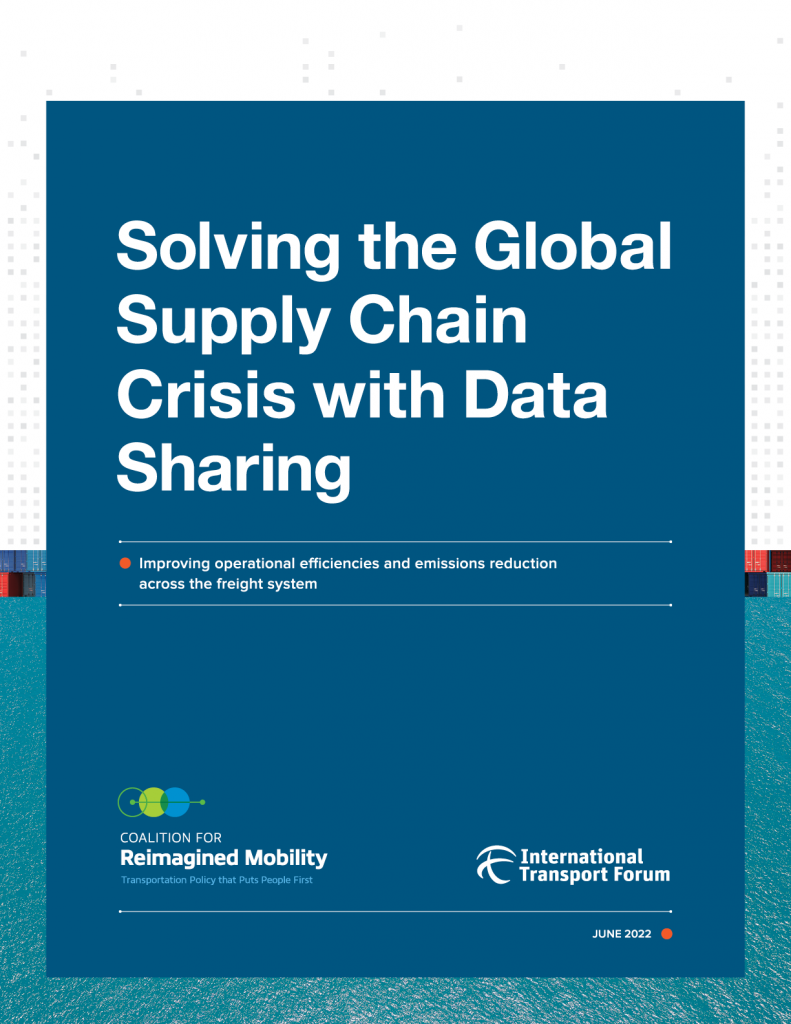Publications
ReMo’s policy team develops clear problem statements, conducts data-driven analysis, benchmarks global best practices, and engages with stakeholders to gather insights. These efforts culminate in the creation of issue briefs, explainers, case studies, whitepapers, and reports designed to inform and drive policy change at the U.S., European, state, local, and multilateral levels.
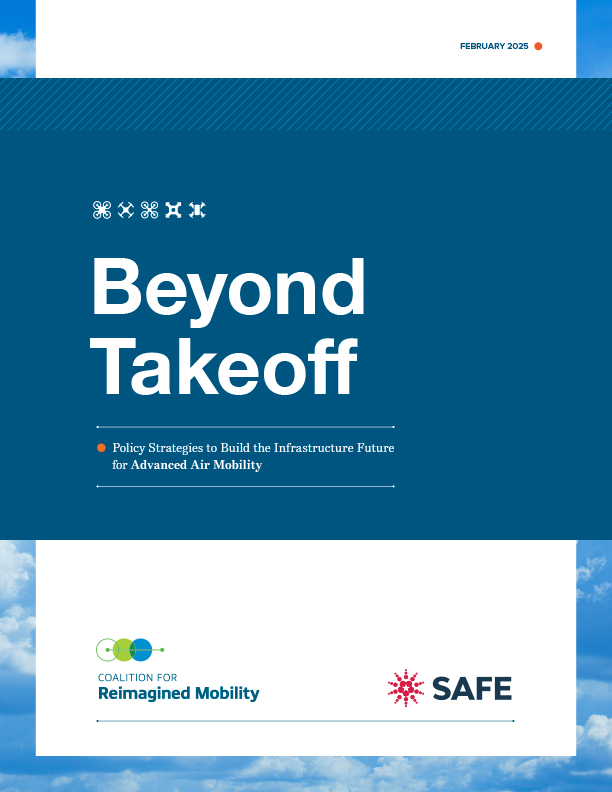
REPORT
Beyond Takeoff: Policy Strategies to Build the Infrastructure Future for Advanced Air Mobility
This report explores how policymakers can shape the future of Advanced Air Mobility (AAM) with strategic public investments and regulatory coordination. With a projected $500 billion global market by 2040, AAM offers transformative potential but risks private sector dominance without proactive policies. The report outlines key recommendations: ensuring public access to vertiports, prioritizing interoperable digital infrastructure, and establishing sustainable funding mechanisms. As global competition intensifies, U.S. leadership depends on a coordinated strategy to integrate AAM into the broader transportation system.
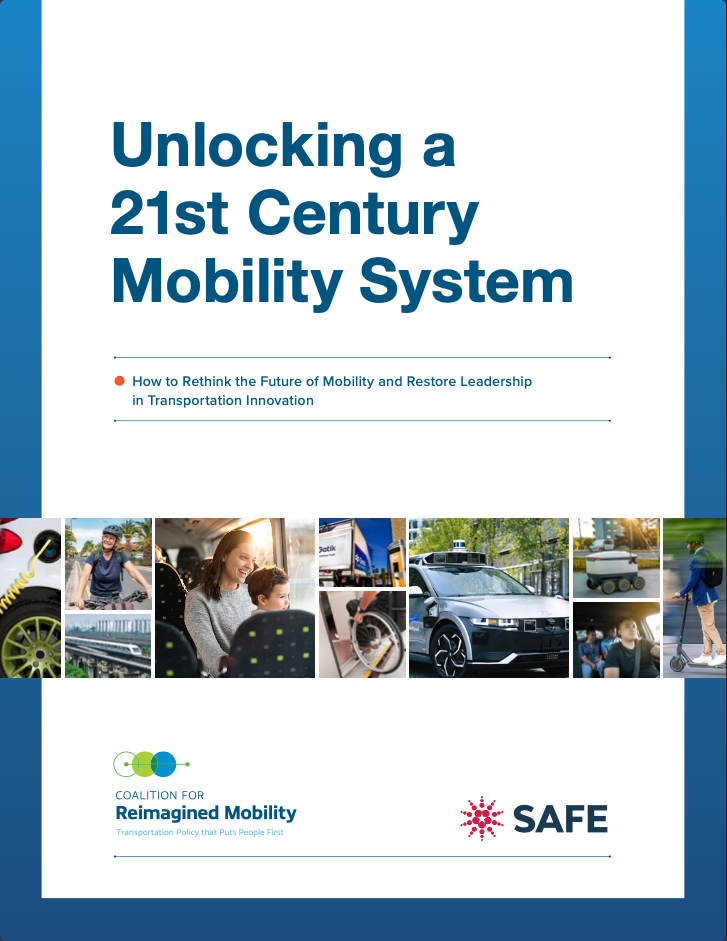
REPORT
Unlocking a 21st Century Mobility System: How to Rethink the Future of Mobility and Restore Leadership in Transportation Innovation
This seminal report aims to reset the narrative around transportation technology and documents both the opportunities and barriers while presenting a course of action to reimagine a global mobility system that delivers transformative changes to effectively address major societal challenges — emissions and air quality, equity, access, national security, efficiency, and safety — that are linked to how people and goods move around the world.
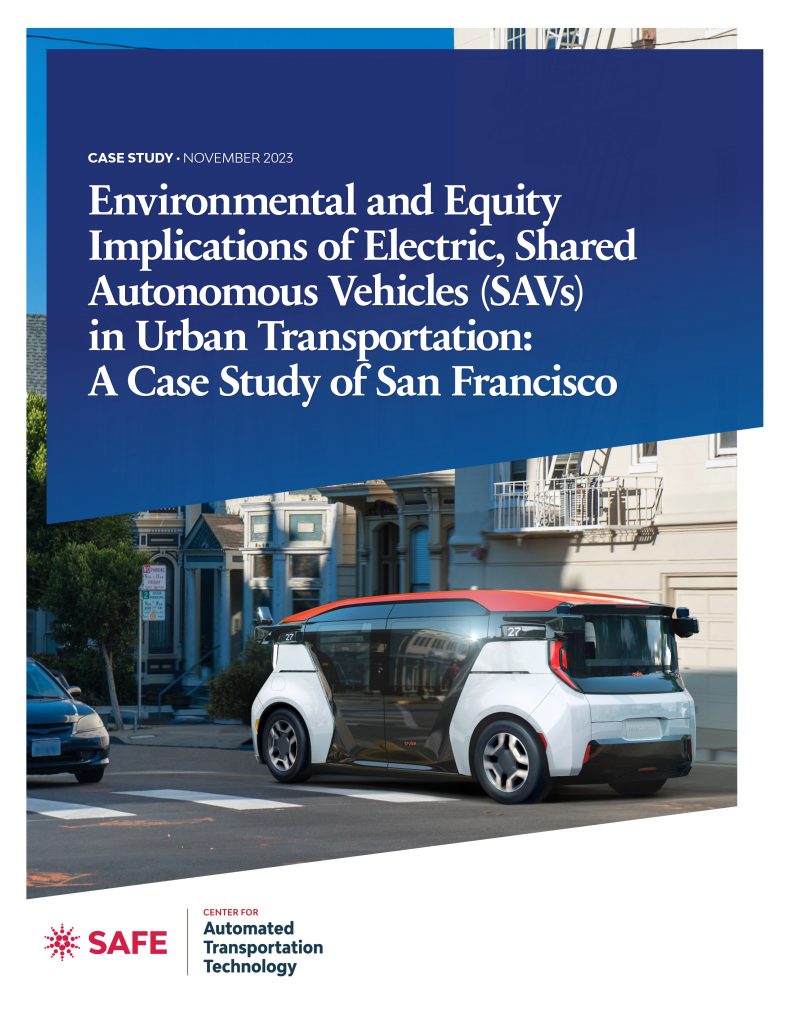
CASE STUDY
Environmental and Equity Implications of Electric, Shared Autonomous Vehicles (SAVs) in Urban Transportation: A Case Study of San Francisco
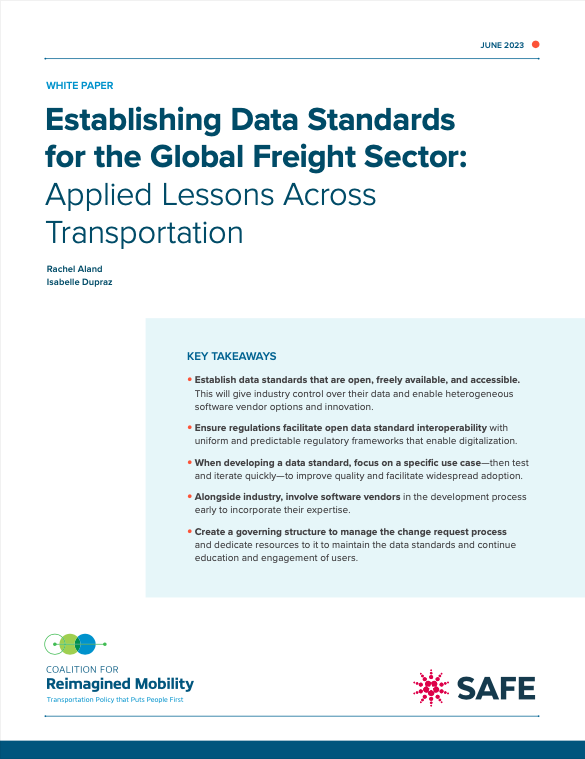
WHITE PAPER
Establishing Data Standards for the Global Freight Sector: Applied Lessons Across Transportation
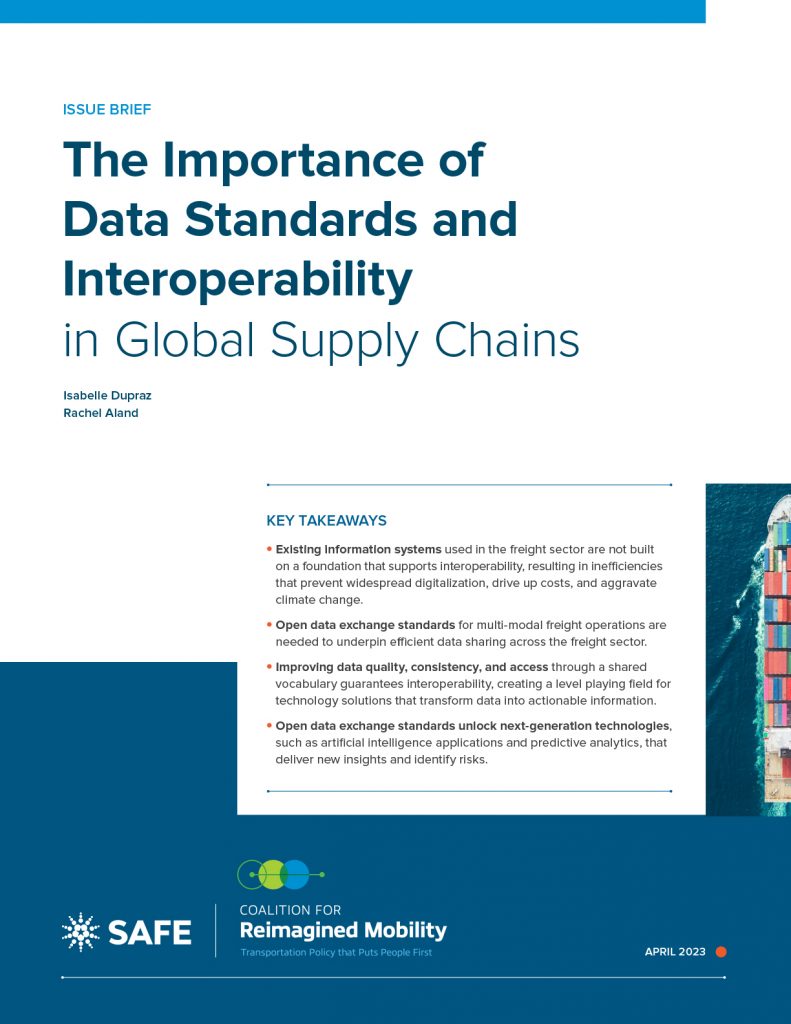
ISSUE BRIEF
The Importance of Data Standards and Interoperability in Global Supply Chains
The brief explores how open, vendor neutral, API-enabled data exchange standards for multi-modal freight operations would lay the foundation for developing interoperable data sharing across the freight sector.
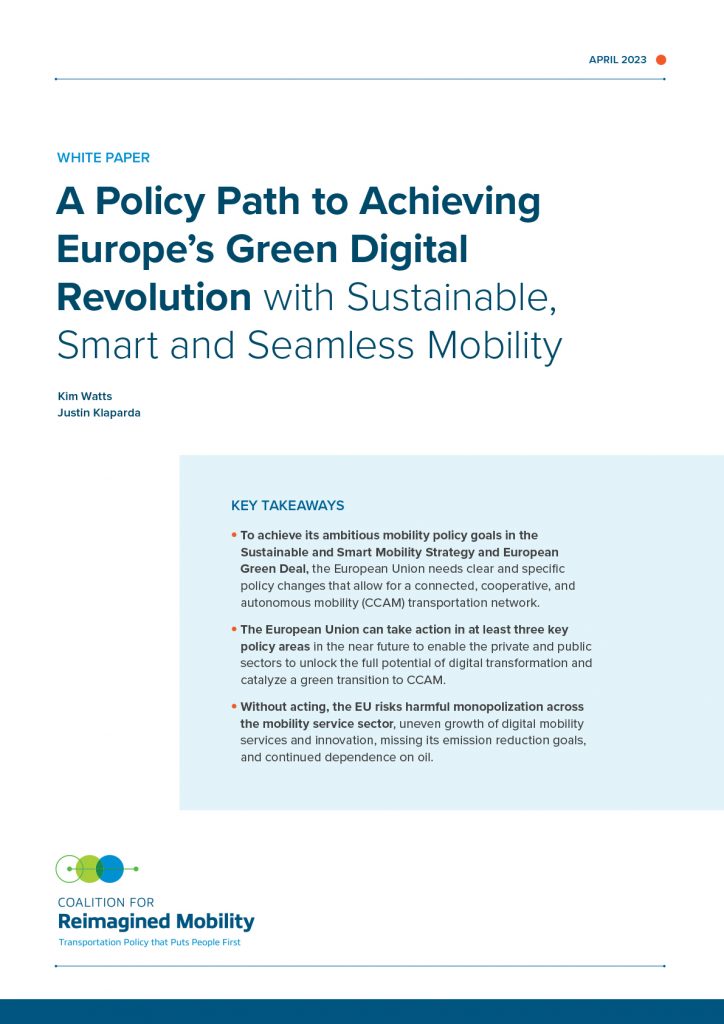
WHITE PAPER
A Policy Path to Achieving Europe’s Green Digital Revolution with Sustainable, Smart and Seamless Mobility
The European Union (EU) aims to reduce transport sector emissions by 90% by 2050. The following white paper includes three policy recommendations to leverage private sector innovation to achieve the zero-emission connected, cooperative, and autonomous mobility (CCAM) future necessary to meet the EU’s Sustainable and Smart Mobility Strategy targets.
